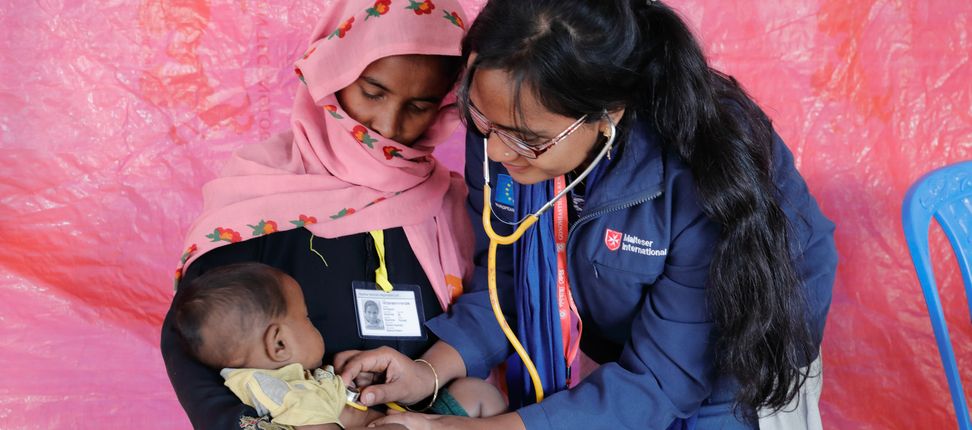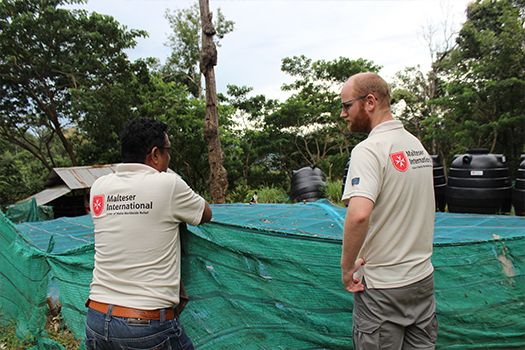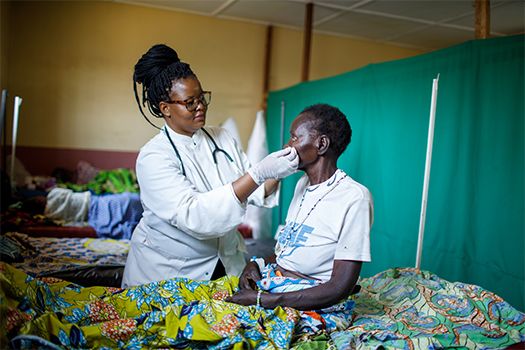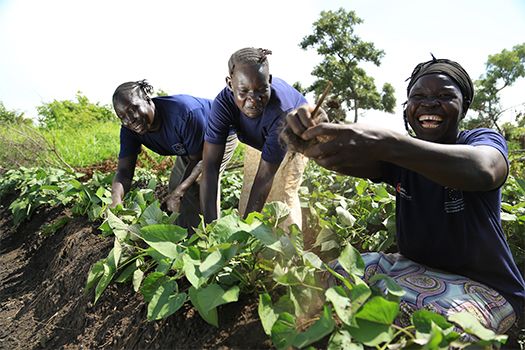
Health, WASH & food and nutrition security: Our work focuses on these sectors
At Malteser International, we place health and well-being at the center of our work. We take a holistic view of health. For us, health is more than just the absence of illness: it encompasses physical, psychological, social and mental well-being. We have defined our strategic focus based on the vital interconnections between health, WASH (water, sanitation, and hygiene), and food and nutrition security. Recognizing that these areas are deeply intertwined, we are committed to implementing an integrated approach across all our projects and programs - wherever possible.

We spoke to our strategy expert Kai Pohlmann about what this means for our work.
Why is Malteser International now focusing more strongly on the sectors of health, WASH (water, sanitation, and hygiene), and food and nutrition security?
Kai Pohlmann: As an organization under the umbrella of the Sovereign Order of Malta, health has traditionally been at the core of our work. Our approach to health is comprehensive and includes physical, mental, and social aspects. WASH and food and nutrition security are inseparable from good health. To illustrate this in practical terms: without clean water for washing hands or food, people are at risk of becoming ill. With sufficient water, people can grow fruit and vegetables, enabling them to eat more healthily and become ill less often. It is a cycle in which everything is interconnected.

What if things need to move quickly? How does our work function across the three sectors in the event of a disaster?
Kai Pohlmann: Each of these sectors contributes significantly to alleviating hardship in its own way. And the work of the individual teams automatically has an impact on each other. In emergency situations, we enable comprehensive healthcare, including psychosocial support, by quickly deploying our medical teams and specialized emergency teams. In the WASH sector, we ensure that people have access to clean water, sanitation, and hygiene measures, among other things, so that diseases do not spread in addition to the emergency situation. When it comes to food and nutrition security, we rely on emergency measures such as food distributions and cash assistance during crises to alleviate acute hardship and strengthen people's resilience. No single measure would have a long-term effect without the others. However, with an integrated approach, we can best meet the basic needs of the affected population and thus help strengthen them for post-crisis reconstruction.

What do we want to achieve in the long term with the integrated sectoral approach, and what are we capable of achieving?
Kai Pohlmann: We want to help people in our project regions to become more resilient to crises and ensure that their needs are met in all relevant areas of life. Wherever and whenever possible, we aim to combine activities from our three core sectors. In doing so, we place particular emphasis on cross-cutting issues such as people-centered, safe, and dignified program design, gender equality, and environmental and climate protection.
(September 2025)








